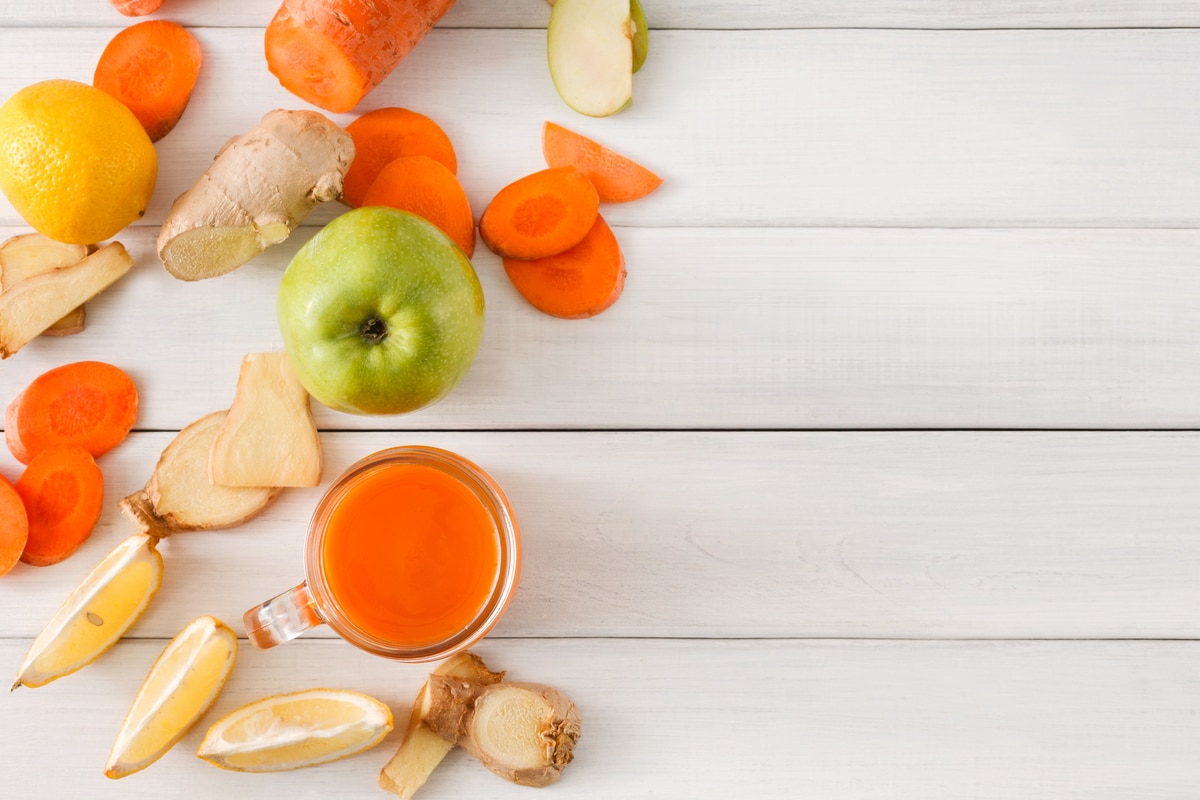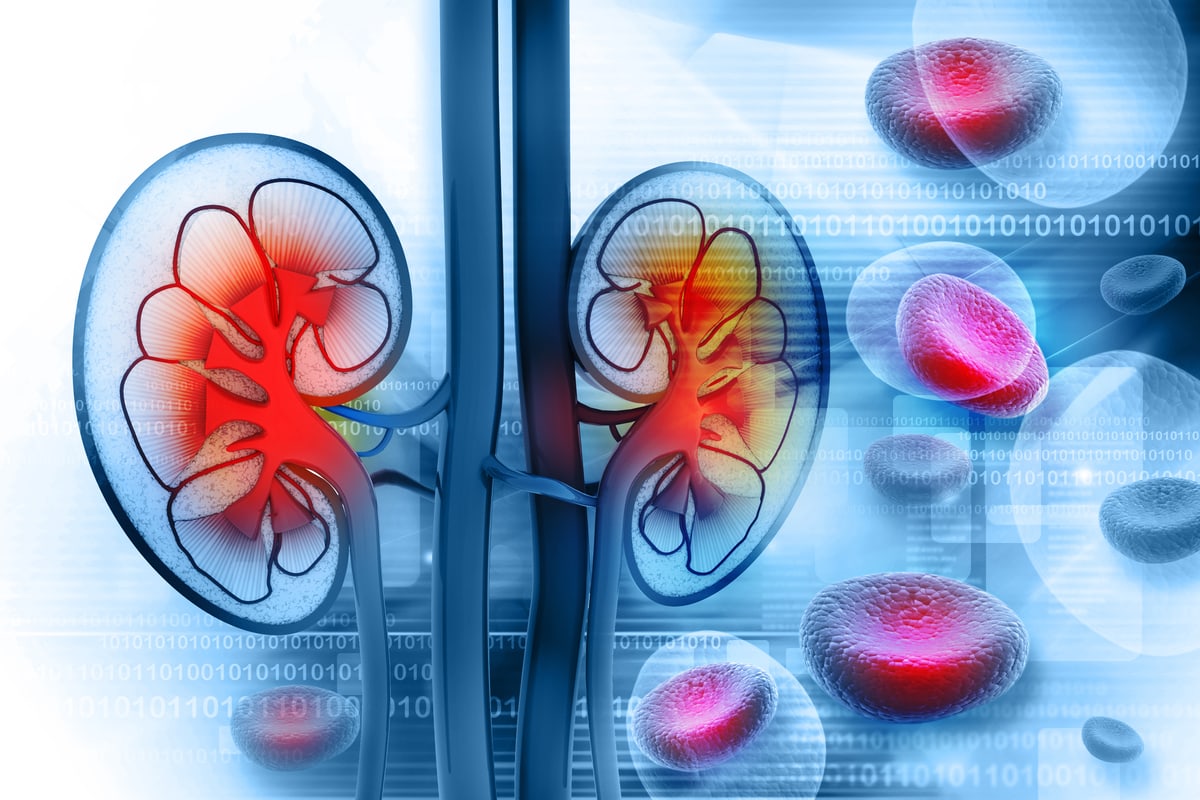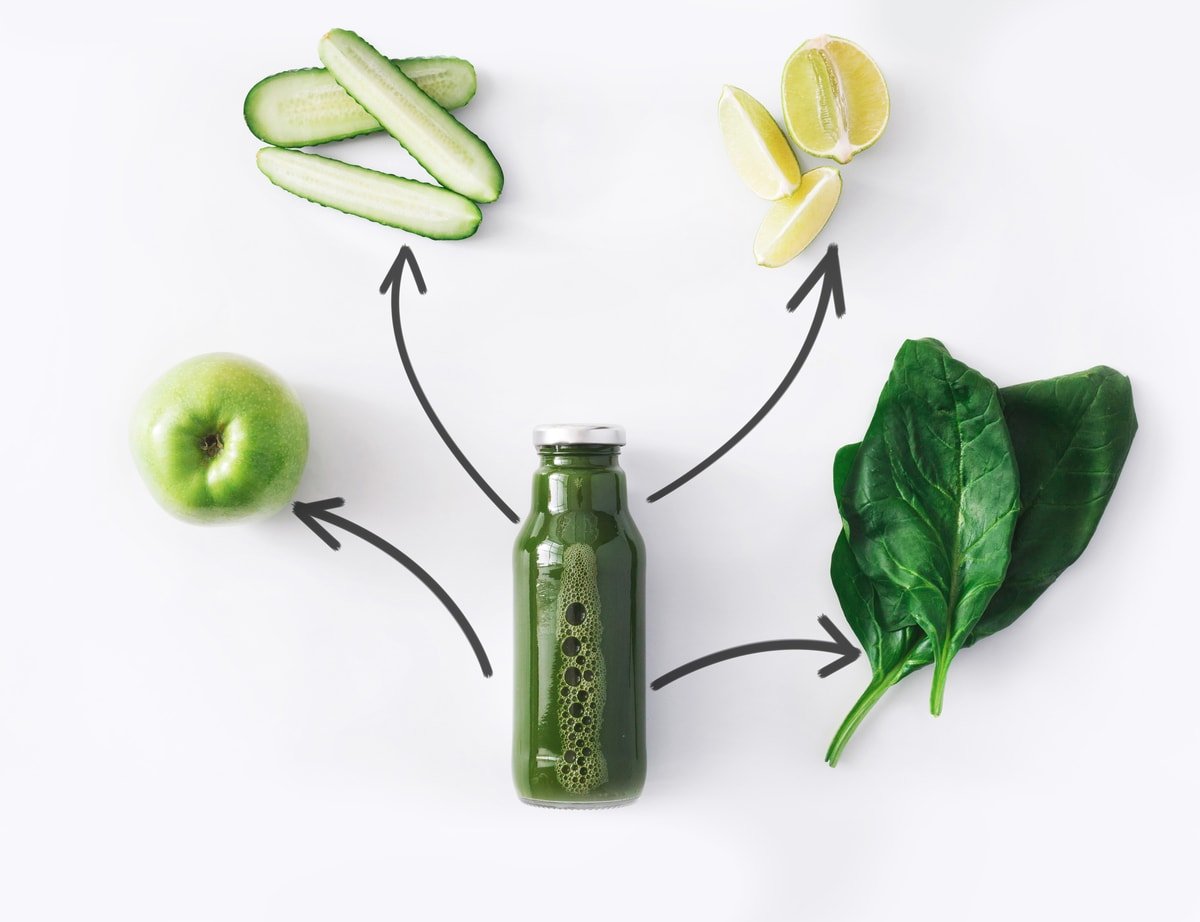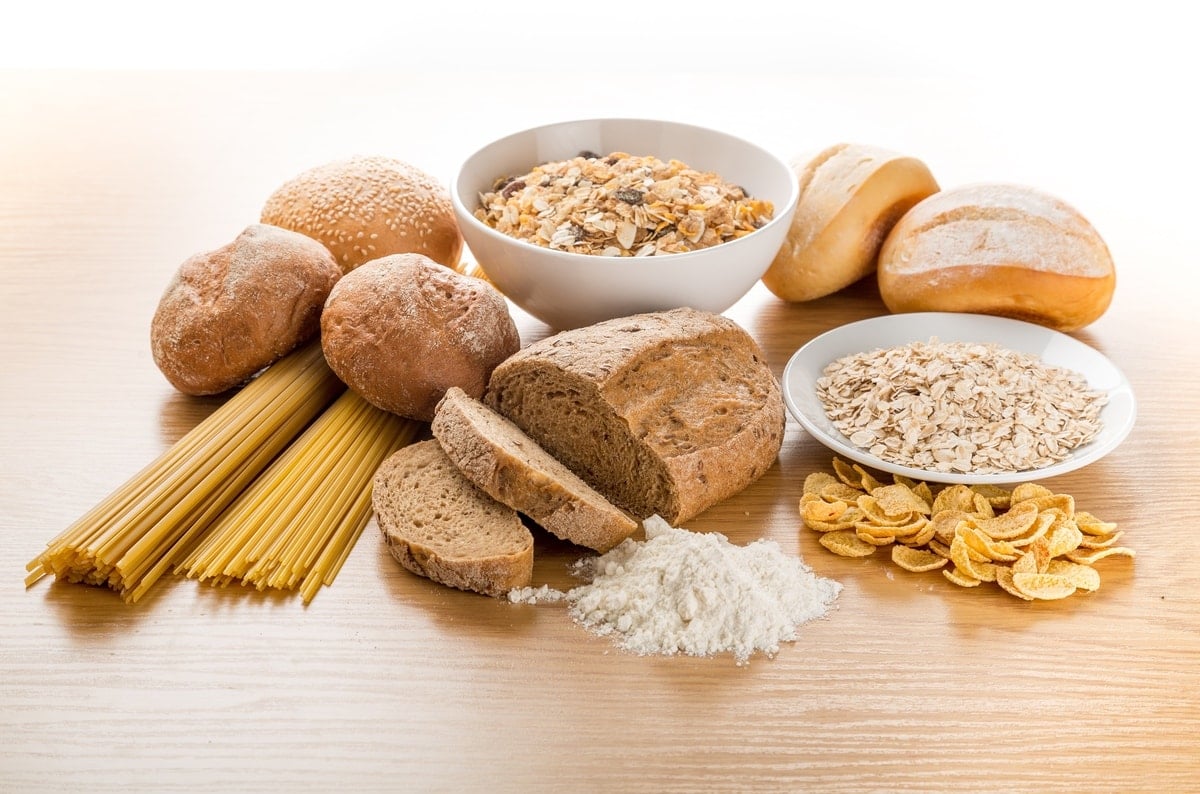In recent years, the juice fast diet has become a trendy option for people trying to lose weight and detoxify their bodies. While it is true that medical science is a bit on the fence about the benefits of a juice cleanse, testimonial evidence from real juicers seems to indicate that a juice cleanse or a detox tea can help improve weight loss (including fat loss) and help remove dangerous toxins from the body by focusing on simpler foods with fewer contaminants and more overall benefits.

However, the problems of juice cleanse diarrhea also pop up from time to time in many studies and testimonials. Those going through a juice fast have reported high levels of more frequent watery bowel movements and aren't sure what is happening. Some might even experience some minor health complications that may end their juice fast and their body cleanse before it has a chance to provide them any real benefits.
That's why it is crucial to understand how a juice cleanse affects your body, whether this cleanse is worth your time, and how you can change a juice fast to minimize your diarrhea symptoms. You'll also learn many more facts about juicing, such as why you should not live on juicing for longer than 3-10 days with each cleanse. You'll also learn how to prevent diarrhea from impacting your juice cleansing diet.
Table of Contents
What is Juicing?
Juicing or juice fasting is a weight loss and detox program designed around removing toxins from your body. A standard detox diet typically uses various healthy ingredients with minimal chemicals to help detoxify the body. Many of these diets focus on foods that improve your bowel movement, such as celery and minimize your detox symptoms to improve your overall health.

Juicing is different because it uses raw juice to remove toxins and protect your digestive tract. Drinking celery juice is familiar with most juice fasting diets. Doing so may help improve your digestive health, eliminate toxins, help with weight loss, and minimize side effects like diarrhea. However, there isn't much medical science behind this type of master cleanse, which may concern many.
Thankfully, most cleanses of this type typically last no longer than 3-10 days, minimizing their downsides. You do not eat other solid foods during this fast and should mostly drink water and no other liquids. These significant dietary changes make it essential to talk to your doctor or dietician before you begin. They may suggest adding prebiotic snacks to your diet or fiber to your drinks to minimize the negative aspects of juicing.
The Potential Benefits of Juicing
Proponents of juicing flaunt many potential benefits of this practice, believing that fruit and veggies create a potent juice diet possibility. Fresh juice (including lemon juice and green juice) drank no more than 1-2 days after juicing may provide benefits like a:
- Possibility of balancing blood sugar in your body
- Higher concentration of soluble fiber in many drinks
- High concentration of vitamins and minerals right in the juice
- Larger content of anti-inflammatory compounds that could boost the immune system
- Potential to flush dangerous substances from your body, including various toxins
- Chance to improve digestion with healthier probiotic gut bacteria
Remember – these are the alleged benefits of drinking juice or creating a cold-pressed juice for your diet. A colon cleanse of this type may be considered a fad diet, though some doctors believe a colon cleansing can be beneficial. But exactly are the cons of this fresh juice diet?
The Potential Risks of Juicing

While many people testify to the benefits of fresh juice diets, many medical specialists and dieticians are concerned about the potential downsides. The benefits have yet to be proven scientifically – but the side effects have been carefully tested. Just a few that concern doctors include how a juice fast may:
- Potentially injury the kidney due to high concentrations of oxalate
- Trigger kidney stones in some individuals
- Cause blood sugar problems in those with diabetes
- Create excessive bowel stimulation that may lead to dehydration
- Possibly cause loose stools caused by fresh juice and vegetable juice
These concerns are essential to understand before you try herbal tea or other juicing options to manage your blood sugar, weight, or detoxification. This last problem is fundamental to explore. Understanding how juicing causes loose stools can help make it easier to prevent this problem.
Does a Body Cleanse Give Diarrhea to Juicers?

Juicing can trigger diarrhea, even in people who don't have other diseases that may worsen bowel movements. This problem typically occurs because a cleanse will remove fat and protein from your diet. These substances help to increase your bowel density and minimize diarrhea problems. Without them, your body's digestive system may get confused and operate poorly, even though your juice is otherwise healthy.
It isn't uncommon for many people to feel stomach pain and cramps during the initial stages of their cleanse. A juice diet isn't something the body naturally accepts with ease. As a result, it isn't uncommon for those interested in this diet to consistently develop these problems and even continue with them after stopping a juicing diet.
That's just one reason why so many people take fiber and even protein supplements while on juice detoxes. These supplements, combined with electrolyte and probiotic additives, can help to make your juices healthier. They can also help with cleanses by keeping your body healthier and strong. However, it is crucial to understand that many of these effects may be different for many people.
Can This Problem Be Prevented?
Diarrhea juicing can be prevented when going through a juicing diet. You need to get at least 0.36 grams of protein per pound of body weight. This protein intake will not only help to make your body healthy but will minimize the dietary or digestive symptoms you may otherwise experience on a juicing diet.

You may also need to adjust your juicing diet to emphasize ingredients like carrots, broccoli, sweet potatoes, coconut water, white potatoes, kale, garlic, acai berries, blackberries, blueberries, and watermelon. Try to avoid rhubarb, onions, corn, figs, currants, cherries, grape, and citrus fruits. Juicing with foods like these should minimize your potential diarrhea.
What is Diarrhea Exactly?
Diarrhea consists of loose or even watery bowel movements that occur several times throughout the day. Your stool will flow out of you very quickly and may be accompanied by pain in some instances. Most diarrhea is caused by sudden dietary changes or infection from bacteria, parasites, or viruses. Juicing can cause chronic diarrhea during your fasting diet and affect you in many ways.
How Does Diarrhea Affect the Body?
Diarrhea can cause many different symptoms when it occurs, such as cramps, loose bowel movements, and stool discolorations. In addition, you may find things like balls of fat, blood, mucus, and even partially digested food in your bowels when you have diarrhea. But what happens in the body when you have diarrhea, and does it have any long-term effects?
Typically, diarrhea is a temporary problem that lasts no more than one or two days. During this time, those with this symptom have a more active bowel digesting their foods excessively. This problem can cause stomach pains by overworking its muscles or even pain throughout the digestive tract. You'll find warnings like these on Advocare cleanse products and when reading about juice cleanses in general.

Diarrhea can also trigger varying blood sugar levels by voiding foods before they are fully digested. When this happens, people may have lower blood sugar levels that can be quite problematic if they have diabetes. Diarrhea may also cause soreness in the anus' muscles, which is often where the blood originates due to excessive strain and use passing diarrhea bowel movements.
However, the most common problem triggered by diarrhea is dehydration. This problem typically occurs when diarrhea lasts for longer than a few days. On a juicing diet, there's a good chance that some people may develop loose bowel movements soon after starting their diet. And these loose stools may last for their whole diet, meaning at least 3-10 days of diarrhea for some people.
Without a steady supply of water (which voids heavily during loose bowel movements), individuals may find their risk of dehydration dramatically increases. The symptoms of dehydration will vary based on its severity and the individual. Signs of dehydration include:
- Confusion and weakness
- Dry skin that flakes easily
- Intense need to drink water
- Miscolored urine

Some people who experience dehydration may also faint or experience a higher risk of heart attacks and other health issues. Therefore, it is crucial to drink a lot of water if you develop diarrhea during a juice fast. However, too much water can also cause worsened diarrhea symptoms. As a result, you must find a way to manage this problem in ways that make sense for you.
Can Diarrhea Be Fixed?
Juicing can be good for your gut health and rarely trigger side effects (like diarrhea and gas) if you're careful about your diet. You may find that your juice detox needs to focus on plant foods that don't cause bloating and contain minimal sugar. You may also need to add some soluble fiber to help improve your juice even further. The amount you add will vary based on your doctor's recommendations.
Ensure that you look at the nutrients in foods like beet juice when going through a juice detox. You'll want a good volume of fiber but not an excessive amount. Again, the level will vary based on your dietitian's recommendation. Most people need around 25 grams of fiber every day to avoid problems like diarrhea and other digestive health issues.
Thankfully, working with your dietitian can help to minimize this potential issue. They will help you choose various fruits that will promote your digestive health, decrease your bloating, reduce gas, and reduce your potential for diarrhea. And you can also consider a myriad of different steps, such as:
- Taking probiotics to improve your gut health
- Try two tablespoons of Kaopectate or Pepto-Bismol after a loose stool
- Add bland foods like bananas and applesauce to your juices
- Decrease your caffeine intake, cutting back on sodas, teas, chocolate, and coffee
- Cut out foods like Brussels sprouts that may worsen your gas and diarrhea

Taking steps like these will improve your detox diet, minimize your potential for loose bowel movements, and help make juicing more beneficial for your health. We strongly suggest always working directly with your doctor and dietitian when changing your diet in this way to get hands-on help from a professional who has your best intentions in mind.
Understanding This Problem
As you can see, juice cleanse diarrhea is nothing to laugh about or take lightly. While a juice cleanse may have many benefits for you, it is essential to do what you can to mitigate this diarrhea effect. For example, try to balance how much celery juice you use in your detox tea and limit the length of your juice fast. A good juice fast should last between 3-10 days before you switch to solid foods again. And make sure to talk to your doctor about any cleanse processes you take to minimize these symptoms further.
Sources:
Clinical Trials: Examining the Effects of Juice Fasting
UCLA: Juicing: Body Cleansing or Nutrient Depleting?
Mayo Clinic: Is Juicing Healthier Than Eating Whole Fruits or Vegetables?
Healthline Plus: Diabetes and Diarrhea
NCBI: Dehydration and Diarrhea
Medical News Today: What are the Pros and Cons of a Juice Cleanse?
Everyday Health: Are Juice Cleanses Good for Your Digestive Health?
Livestrong: Can Juicing Cause Diarrhea?
SCL Health: How Much Protein is Simply Too Much?
Healthline: What to Eat When You Have Diarrhea
Very Well Health: What to Eat for Diarrhea
Medline Plus: What is Diarrhea?
Cleveland Clinic: Diarrhea
Food Republic: How Much Fiber is Lost With Juicing?
Healthline: 10 Foods That Cause Gas
Mayo Clinic: Diarrhea

Leave a Reply